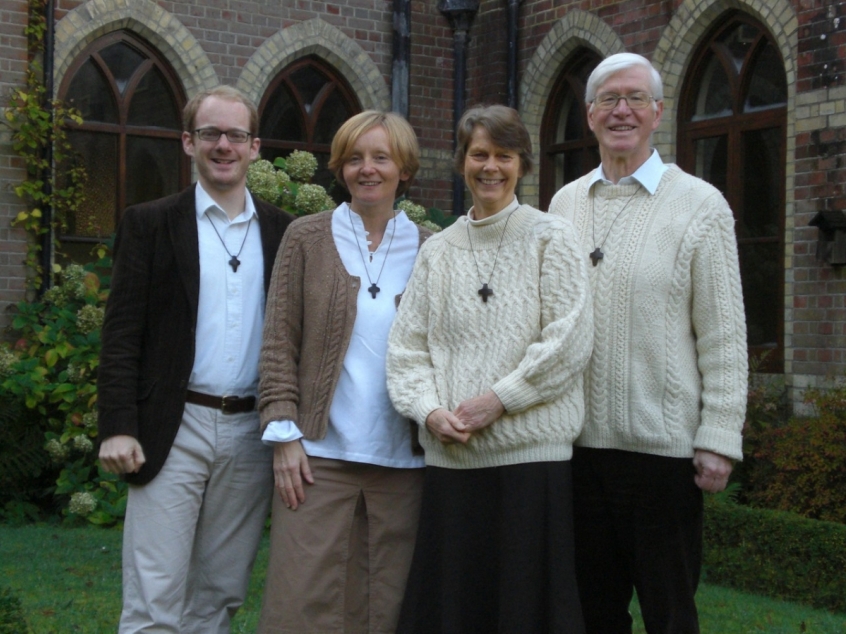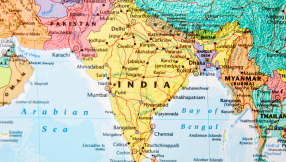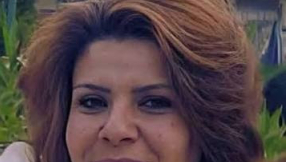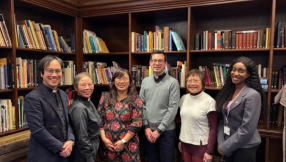
The Archbishop of Canterbury has officially welcomed and commissioned four members of the international ecumenical community Chemin Neuf to take up residence at Lambeth Palace.
Archbishop Justin Welby described it as a "radical and exciting new step" in ecumenical relations.
Chemin Neuf, meaning the 'New Way' in English, is a Catholic ecumenical community founded in 1973 in Lyon and consisting of some 2,000 members from different church denominations across 30 countries.
Archbishop Welby has longstanding connections with the Chemin Neuf community, having taken part in several retreats with them, including one he attended for a week before his ascension to spiritual leader of the worldwide Anglican Communion.
The four new residents of Lambeth Palace are Anglican couple, Ione and Alan Morley-Fletcher, a German Lutheran training for ministry, Oliver Matri, and a consecrated Roman Catholic sister from Poland, Ula Michlowicz.
Their central role at the palace will be one of praying regularly in the Crypt Chapel. This is in line with one of Archbishop Welby's priorities to see the renewal of prayer and the religious life within the Church.
"There has never been a renewal of the Church in Western Europe without a renewal of prayer," said Archbishop Welby. "If we want to see things changed, it starts with prayer."
The four will take prayer requests and also be praying for particular dioceses on a rota basis, as well as developments in the Church and the wider world.
Three services will be held each day in the Crypt Chapel in an effort to ensure the Archbishop's ministry and the church as a whole is held in constant prayer.
Talking about the importance of Chemin Neuf members taking up residence at Lambeth Palace, the Archbishop said: "This is at the heart of ensuring that Lambeth is not an office, but that it is also a community of prayer.
Matri added: "The very important thing for our work here is our times of intercession."
The longer term goal is reconciliation with the Catholic Church.
The Superior General of Chemin Neuf, Father Laurent Fabre, spoke about the separation that has existed since the reformation, "Four hundred and eighty years it has been, and we are rejoicing over this new step. But the one who is rejoicing most is the Father himself, because 480 years is a long even for God.
"This is the first step of something new."
The Archbishop of Canterbury described the tradition of ecumenical communities in England as being one that "stretches back 800 years, with one or two bumps along the way".
The Archbishop's Chaplain, the Reverend Dr Jo Wells said: "Actually their presence reminds us that the Church is bigger than the Church of England or the Anglican Communion that we are so often focused on.
"Their presence reminds that we don't need to do separately what we can do together – and what we do together, we do better."
She added: "It is a risk to cross some boundaries ... We don't know what kind of new fruit will be born from this endeavour."
Matri said: "The most important thing, in being part of Chemin Neuf, is living and praying with people daily who come from completely different churches with completely different Christian backgrounds."
Alan Morley-Fletcher added that as an ecumenical community, Chemin Neuf had "a vocation for promoting Christian unity".
Michlowicz admitted she felt a deep experience of both "communion and suffering of separation", and that she occasionally feels the need to take communion with other Catholics elsewhere.
Despite the challenges of ecumenism, Fr Laurent was upbeat about progress towards unity, pointing to Jesus as the best example for Christians transcending barriers on points like the Eucharist.
"Even Jesus took communion with Judas," he said.
Michlowicz also spoke of a vision she had for this new endeavour, and for the future of the Anglican and Roman Catholic Churches coming together: "It is like being part of an underground prayer stream overflowing into Lambeth Palace, to the city of London, to all these places we're praying for."
She compared this to the river from the temple described in chapter 47 of the Old Testament book of Ezekiel.
Talking about the reconciliation process, she said: "I'm not focusing on the differences between us. Prayer is the common ground here."
While the presence of Chemin Neuf at Lambeth Palace is significant, Archbishop Welby was keen to keep things in perspective. "At the moment, we are taking things a step at a time," he said.













